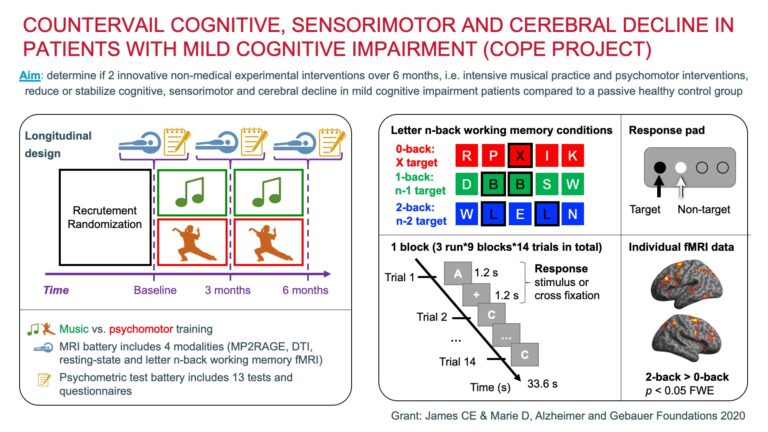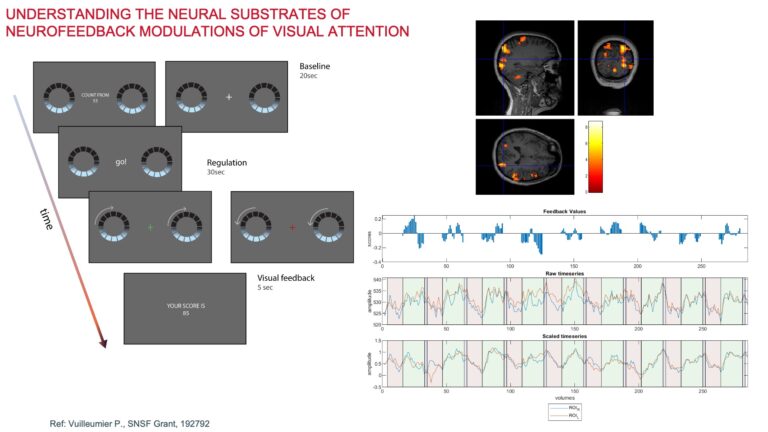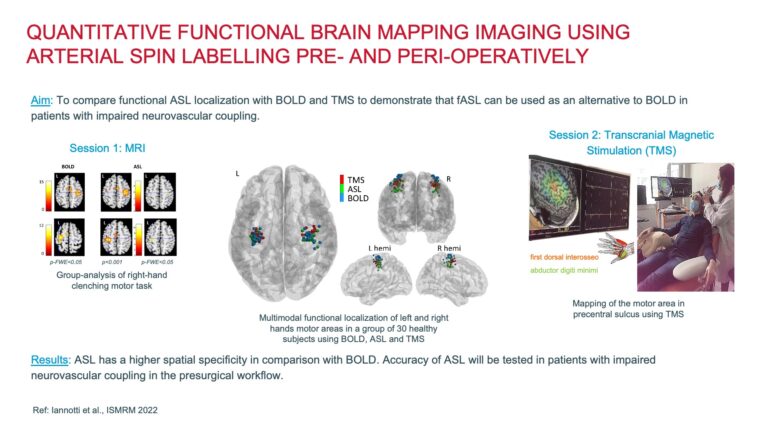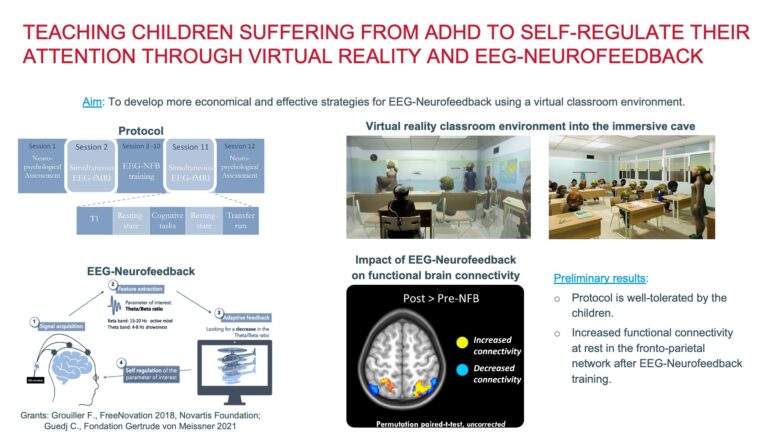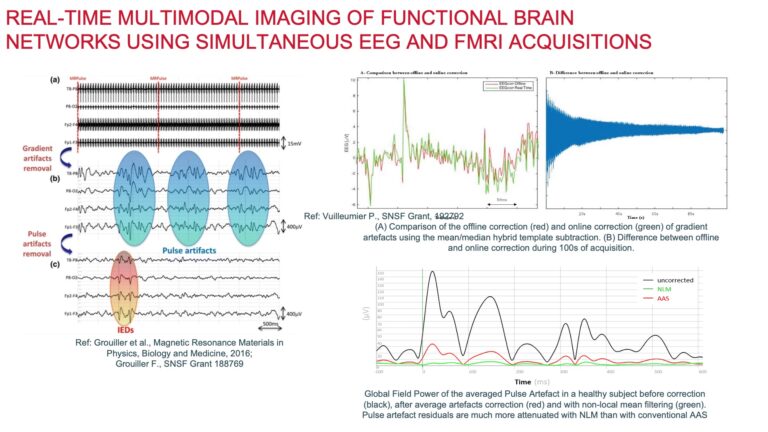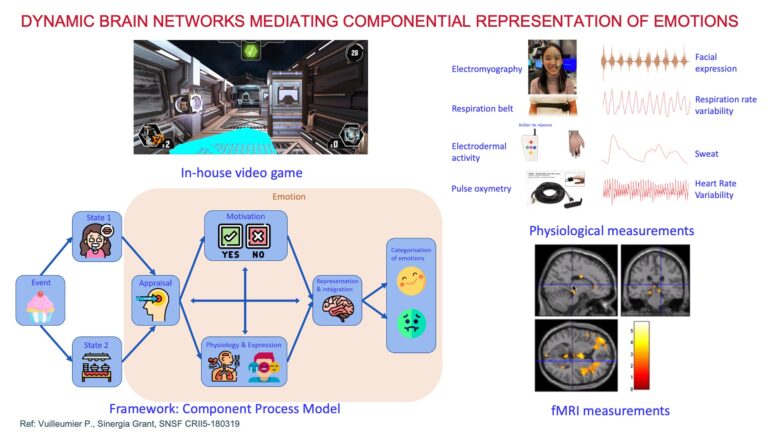Countervail cOgnitive, sensorimotor and cerebral decline in Patients with Mild cognitive imPairmEnt (COPE project)
Description: This multisite randomized controlled trial aims to determine if 2 specifically developed innovative non-medical experimental interventions over 6 months, i.e. intensive musical practice and psychomotor interventions, may have an important societal impact, via the reduction or stabilization of cognitive, sensorimotor and cerebral decline, in MCI patients compared to a passive healthy control group.
The training regimens take place twice a week for 45 minutes over 6 months in small groups, provided by professionals, and patients should exercise daily at home.
Data collection takes place at baseline (before the interventions), 3, and 6 months after training onset, using a comprehensive psychometric test battery on cognitive and sensorimotor capacities, subjective well-being, daily living activities, and a functional and structural MRI battery (MP2RAGE, DTI, resting-state fMRI and an fMRI working memory task). Patients come from HUG and CHUV, MRI takes place at BBL and LREN respectively (Brain and Behaviour Laboratory and Laboratoire de Recherche En Neuroimagerie).
We hypothesize that intensive musical practice and psychomotor interventions in MCI patients in small groups over 6 months will improve general cognitive functioning compared to the passive control group. Both interventions will be compared as well, and behavioral changes will be related to brain plasticity.
Investigators: Clara James (UNIGE/HES-SO), Damien Marie (UNIGE/HES-SO)
Collaborators: Gilles Allali (CHUV/UNIL), Andrea Brioschi Guevara (CHUV/UNIL), Giovanni Frisoni (HUG/UNIGE), Matthias Kliegel (UNIGE), Chantal Junker-Tschopp (HES-SO)

